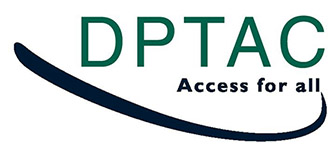DPTAC Main Committee meeting minutes December 2021
Updated 18 March 2025
11am to 3pm, 7 December 2021, online.
Attendees
DPTAC: Keith Richards (Chair), Will Bee, Chris Price, Tanvi Vyas, Roger Mackett, Dave Partington, Matthew Smith, Mike Brace, Sharon Brennan, Niki Glazier, Helen Dolphin.
Guests: West Yorkshire Combined Authority (WYCA), Scope, Network Rail (NR) / Great British Railways Transition Team (GBRTT), Cabinet Office Disability Unit (CODU), Mobility and Access Committee Scotland (MACS), Transport Scotland.
Introductions and apologies
DPTAC chair welcomed everyone to the meeting and noted apologies from Bryan Matthews and Jessica Uguccioni.
Chair asked for the disclosure of any conflicts of interest:
- Helen works for Network Rail
- Keith is on the board of Transport Focus and chairs Rail Ombudsman’s scheme council
- Matthew works for ORR, Southeastern
- Roger is involved in HS2-funded research on impact of HS2 on wellbeing of people in area
- Tanvi delivered DET to various train operating companies (TOCs)
Rail accessibility
DPTAC noted the Committee’s long interest in staffing and the Williams-Shapps plan is a unique opportunity to act. NR/GBRTT agreed the Williams-Shapps plan is a once in a generation opportunity for an accessibility strategy and that it will be completed in the context of financial constraints.
DfT highlighted potential improvements such as financial support for the Passenger Assist app, reducing Passenger Assist notice period, accessibility audit, or firmer obligations on improving accessibility being written into new contracts.
DPTAC’s comments included the delivery of accessibility noting cost challenges, and the lack of staffing due to driver only trains. DPTAC were unclear about the balance of cost/benefit calculations, especially given the external benefits of rail accessibility e.g. employment. DfT hoped the creation of Great British Rail will offer the opportunity to be more joined up and clarified that the cost/benefit calculation is included as part of the decision minister’s make. DfT made a strong argument for the funding for rail due to its external benefits.
Chris Heaton-Harris, Minister of State, outlined his ambition for Rail to be in a similar position to airlines, where disabled passengers can travel with the confidence that they will have sufficient assistance at all points.
DfT noted an element of workplace reform is modernising attitudes and agreed that passengers need the confidence that the system will meet their needs. They noted that TOCs have a number of staff employed to do specific roles which may prevent them from serving customers in other ways.
Cabinet Office Disability Unit update
The Deputy Director at CODU shared her two priorities which involve the delivery of existing commitments and the one year on report. Her workstreams also include improving data and evidence, including evaluation of the National Disability Strategy; stakeholder engagement; Spending Review; disability workforce reporting consultation; assistive technology.
DPTAC asked if there is scope to join up work on disability in other government departments. CODU is working on this and has Ministerial Disability Champions and a senior civil servants’ group to try to create cohesion.
West Yorkshire Combined Authority Bus Service Improvement Plan
West Yorkshire Combined Authority (WYCA) presented on their accessibility initiatives as part of the Bus Service Improvement Plan (BSIP).
DPTAC were pleased to see accessibility embedded in the BSIP and their questions included plans for staff training to embed consistency; the consideration of an app for disabled people (e.g. to report hate crimes); the needs of carers as part of their personas for bus users and the opportunity for audio-visual information on new build buses.
WYCA confirmed there is appetite for a shared training module, and potential consideration of an app if the trial run of proposed app for women and girls is successful. The authority added they are planning disability hate crime/bystander training in early 2022 following stakeholder engagement. WYCA clarified that the personas are outlines and consideration is being given to carers which will be covered in design updates. They also recognised the importance of vehicle standards and considering design specification. With a move to 100% zero emission buses, they will have an opportunity to drive forward accessibility with new buses.
DPTAC chair asked if Mobility as a Service or Demand Responsive Transport could improve rural services. WYCA said they are looking into this given the challenges of providing a rural bus network connected to their polycentric urban network. They have launched East Leeds flexibus and are looking at rolling out more.
DPTAC mentioned the importance of accessing information pre-travel. WYCA are trying to provide at bus stations and make pre-planning information available.
Scope passenger charter
Scope provided background to the passenger charter which is being taken forward with DfT; this emerged following a report which explained how a disjointed transport approach creates difficulties for disabled people.
The purpose of the charter is to streamline existing information, setting things out clearly, exploring legal obligations, regulations, compensation schemes.
MACS asked if the charter would cover Wales and Scotland, DfT said a decision is yet to be made on its territorial extent.
DPTAC welcomed the amalgamation of information, but questioned whether there was scope to rename the charter to avoid misunderstanding of the term. They also asked if disabled people will be involved in its production. Scope are interested in involving disabled people and notified their co-production lead about this. The name of the document may be tested during the process of designing it.
DPTAC reiterated the importance of this work, particularly because of information surrounding rights, expectations, requirements can be confusing so clarity is valuable.
Rail staffing discussion follow-up
DPTAC were pleased with colleagues’ honesty in the earlier rail accessibility conversation. Although some options to achieving specific outcomes appeared unlikely, the Committee were still keen to work towards their objectives, rethinking the way in which this is done.
The Committee noted aviation accessibility is far from perfect, and felt intersectionality was important to consider. They noted that engagement on staffing issues is challenging compared to other workstreams referenced in the Williams-Shapps plan.

